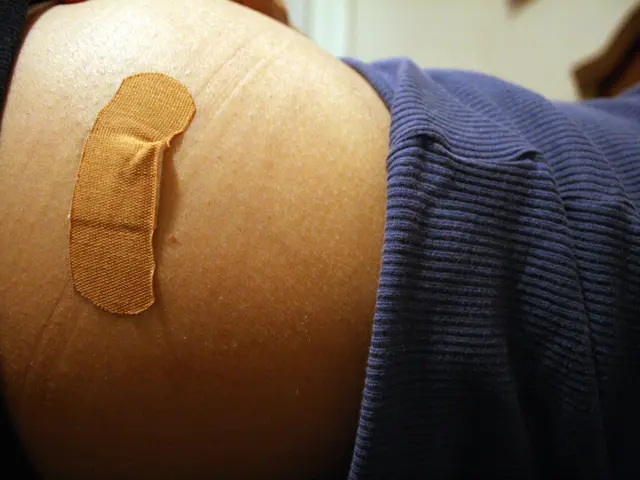Organ donation: Should an individual opt-in or opt-out be the standard practice?
Organ donation policies differ globally, sparking the question: should it be an opt-in or opt-out system? West Country researchers take a deep dive into 48 countries' organ donation protocols to find the best approach.
Under an opt-in system, individuals must sign up to a register to donate their organs after death. In contrast, an opt-out system allows for organ donation to occur automatically unless there is a specific request made prior to death not to take them.
Prof. Eamonn Ferguson from the University of Nottingham, UK, recognizes potential drawbacks stemming from the reliance on individual decisions in both systems:
"People may not act due to reasons like loss aversion, effort, or the belief that policy makers have made the correct decision they subscribe to."
Inaction in an opt-in system can lead to people intending to donate not doing so (a false negative). On the other hand, inaction in an opt-out system might result in someone unwilling to donate becoming a donor (a false positive).
The United States employs an opt-in system. Last year, 28,000 transplants were made possible due to organ donors. About 79 people receive organ transplants every day, but around 18 individuals die daily because of a shortage of donated organs.
The team from the University of Nottingham, University of Stirling, and Northumbria University analyzed the organ donation procedures of 48 countries for 13 years, with 23 using an opt-in system and 25 an opt-out system.
The results revealed that countries with opt-out systems had a higher overall number of kidneys donated, the organ most people on transplant lists are waiting for. Opt-out systems also saw a greater total number of organ transplants overall. Intriguingly, opt-in systems had a higher rate of kidney donations from living donors.
The researchers note that their findings suggest "opt-out consent might lead to an increase in deceased donation, but a reduction in living donation rates." Opt-out consent also shows an upward trend in the total number of livers and kidneys transplanted.
The authors acknowledge the study's limitations: it fails to differentiate between varying degrees of opt-out legislation in some countries, where consent from next-of-kin is required for organ donation. The study's observational nature also means that other factors that might influence donations were not measured.
Moving forward, the researchers publish their results in BMC Medicine and suggest that future decisions on policy could be informed by these findings. They also propose strengthening the research by collecting international organ donation data, including consent type, procurement methods, and hospital bed availability, and making it publicly accessible.
Prof. Ferguson suggests that future studies should also delve into individual perspectives, including beliefs, preferences, and attitudes towards opting in or opting out, using survey and experimental methods.
The authors argue that countries using opt-out consent still struggle with organ donor shortages. Therefore, completely changing the system of consent is unlikely to solve the issue. Instead, consent legislation or adopting aspects of the "Spanish Model," known for having the world's highest donation rate, could be viable ways to boost donor rates.
The Spanish model makes use of opt-out consent but also leverages various factors for success, including a transplant coordination network that operates at both local and national levels, and the improvement of public information regarding organ donation.
A recent Medical News Today feature explores whether farming animal organs for human transplants could provide a solution to the organ shortage or if this problem might be addressed through changes to organ donation policies.
- Despite global differences in organ donation policies, the question of whether it should be opt-in or opt-out remains a topic of debate.
- Prof. Eamonn Ferguson from the University of Nottingham discusses the potential drawbacks of relying on individual decisions in organ donation systems.
- He suggests that people may not act due to reasons like loss aversion, effort, or believing that policy makers have made the right decision.
- In an opt-in system, individuals must sign up to donate their organs after death, which can lead to people intending to donate not doing so (a false negative).
- On the other hand, in an opt-out system, someone unwilling to donate might become a donor (a false positive).
- The United States, for instance, employs an opt-in system, with around 18 individuals dying daily due to a shortage of donated organs.
- The researchers from Nottingham, Stirling, and Northumbria Universities analyzed the organ donation procedures of 48 countries for 13 years.
- Their findings revealed that countries with opt-out systems had a higher overall number of kidneys donated and a greater total number of organ transplants, while opt-in systems had a higher rate of kidney donations from living donors.








